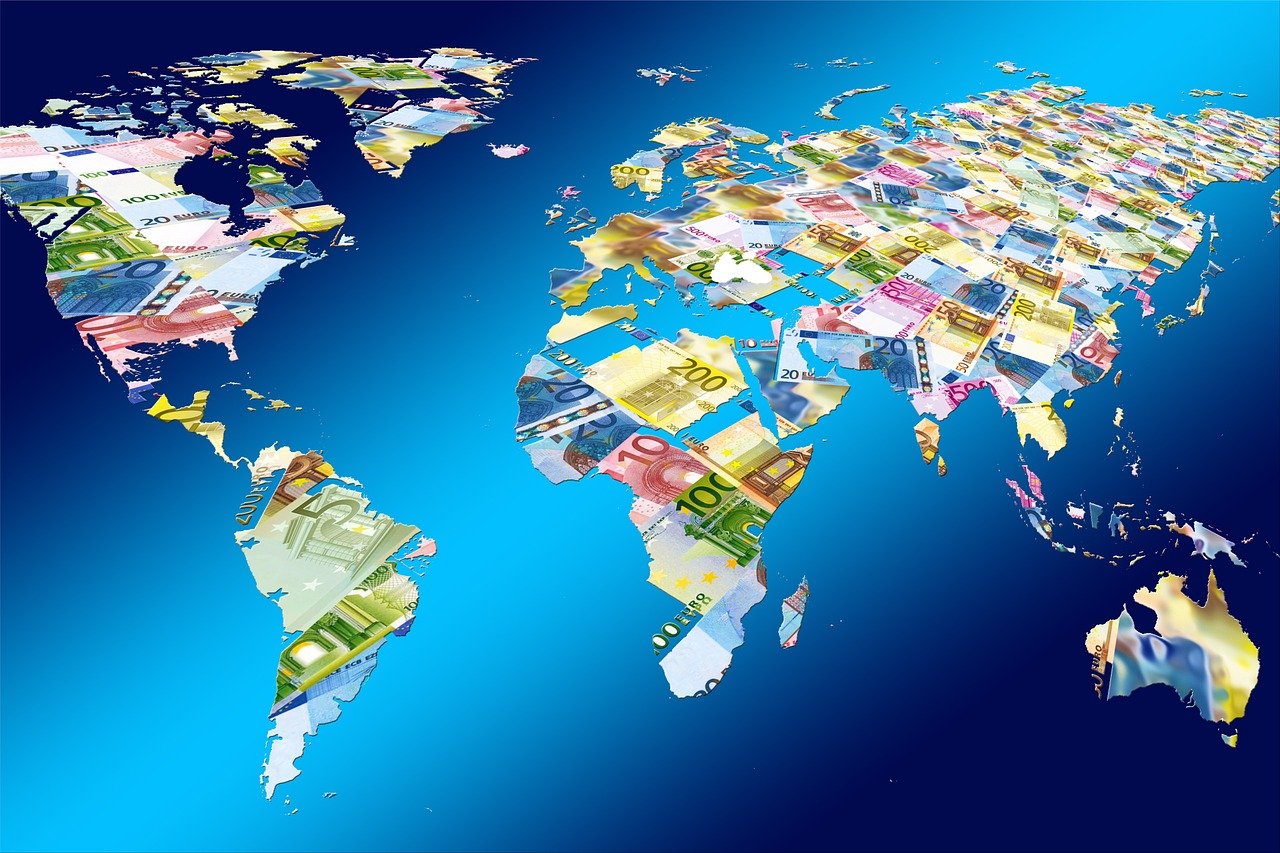USD to THB Exchange Rate: Key Factors, Conversion Methods, and Tips
GPT_Global - 2025-11-02 05:30:15.0 2
What is the official central bank rate for USD to THB?
```htmlThe official central bank rate for USD to THB is a critical factor for businesses involved in remittance services, as it directly influences the exchange rates used for international transfers. The rate is determined by the Bank of Thailand and is subject to fluctuation based on various economic factors such as inflation, interest rates, and the overall health of the Thai economy.
For remittance businesses, understanding the official central bank rate helps in offering competitive rates to their customers. It allows businesses to calculate the real-time exchange rate that they will use for transferring money from the U.S. to Thailand, ensuring that customers get the best possible value for their money. Remittance services often track these rates closely to minimize exchange rate risk and optimize profitability.
As exchange rates can fluctuate, it’s essential for remittance businesses to remain updated with the latest rates provided by the central bank. Offering transparent and real-time exchange rate information can also build trust with customers, helping businesses to foster loyalty and repeat transactions.
```
Why does the exchange rate for USD to THB differ between tourist and local exchange rates?
The exchange rate for USD to THB (Thai Baht) often differs between tourist and local exchange rates due to market demand, transaction volume, and service costs. Tourists typically exchange smaller amounts at airport kiosks or hotels, where rates include higher markups to cover convenience fees and operational expenses. Local businesses and remittance providers, however, benefit from wholesale exchange rates that are closer to the real market rate.
Another factor is competition. Tourist exchange counters cater to short-term visitors who value speed and accessibility, while local exchange houses and remittance services compete on offering better rates for larger transactions. As a result, residents or overseas workers sending money to Thailand often receive more favorable rates from remittance platforms than from tourist exchange points.
For anyone looking to send USD to Thailand, using a trusted remittance service can help maximize value. These platforms often provide transparent exchange rates, lower fees, and faster transfers compared to traditional banks or tourist exchangers. Understanding how exchange rate structures work helps customers choose smarter and save more when transferring money across borders.
How do credit card payments in USD convert to THB?
Credit card payments in USD are a common way to make international transactions, but how do these payments convert to Thai Baht (THB)? When a customer makes a purchase in USD, the credit card issuer first determines the exchange rate between USD and THB at the time of the transaction.
Credit card companies usually use a daily exchange rate, which can fluctuate based on market conditions. This rate is then applied to the USD amount, converting it into THB. The exchange rate may include additional fees or markups, depending on the credit card issuer’s policy. This means the final THB amount could be slightly higher than the standard market rate.
For businesses in the remittance industry, it’s essential to understand how these conversions work. Customers sending money from the US to Thailand via credit card might not get the exact exchange rate they see online. Some remittance companies offer more favorable rates or lower fees than traditional credit cards, which can save customers money.
In conclusion, credit card payments in USD convert to THB based on the exchange rate at the time of the transaction, but additional fees and fluctuations can affect the final amount. Remittance services may offer a more cost-effective alternative for currency conversion.
What are the most reliable websites for checking the USD to THB exchange rate?
When dealing with remittances, it's crucial to keep track of the USD to THB exchange rate to ensure you're getting the best deal. With fluctuating markets, using reliable websites to monitor the rate can make a big difference in your transactions. Here are some of the most trustworthy platforms to check the exchange rate:
1. **XE.com** – Known for its real-time updates, XE provides accurate exchange rate data and is widely used by individuals and businesses for international transfers. It also offers a currency converter and historical exchange data.
2. **OANDA.com** – A favorite among businesses, OANDA delivers precise exchange rate information, and their site includes tools for forecasting and analyzing trends, which are helpful for remittance businesses managing risk.
3. **Google Finance** – A quick and accessible option, Google’s built-in currency converter allows you to get up-to-date exchange rates with just a search. It's perfect for casual checks on the USD to THB rate.
4. **TransferWise (now Wise)** – Wise’s platform is known for providing transparent, real-time exchange rates and is a popular tool among those sending money abroad due to its low fees and competitive rates.
These websites can help you stay informed about exchange rate fluctuations and choose the best time to remit money from the US to Thailand.
Is it better to exchange USD in Thailand or in the US before traveling?
When planning a trip to Thailand, one of the most common questions travelers ask is whether it’s better to exchange USD in Thailand or in the US before traveling. The answer largely depends on where you can get the best exchange rate and the lowest fees. Generally, exchanging your USD in Thailand offers more favorable rates than doing so in the US, as local exchange booths and banks in Thailand tend to provide better value for foreign currencies.
However, it’s important to compare your options carefully. Major Thai cities such as Bangkok, Chiang Mai, and Phuket have many reputable exchange counters that offer competitive rates with minimal service fees. On the other hand, US-based banks and airports often charge higher margins and transaction fees. For travelers who prefer convenience and safety, using a reliable remittance service or digital money transfer app can also be a great alternative to carrying large amounts of cash.
By sending money ahead through a trusted remittance provider, you can lock in favorable exchange rates, ensure security, and have Thai Baht ready upon arrival. Whether you’re paying for accommodation, local tours, or daily expenses, this approach offers flexibility and peace of mind for a smoother travel experience.
How does the USD to THB rate compare to other currencies like GBP or JPY?
The USD to THB (U.S. Dollar to Thai Baht) exchange rate plays a vital role in international remittances, especially for individuals sending money to Thailand. As of recent trends, the USD remains relatively strong against the THB, making it favorable for those transferring funds from the United States. This strong rate means recipients in Thailand can receive more baht per dollar, increasing the value of remittances.
When compared to other currencies such as the British Pound (GBP) and the Japanese Yen (JPY), the USD offers a more stable and competitive exchange rate. The GBP to THB rate is generally higher per unit, but currency volatility and transaction fees can reduce its advantage. Meanwhile, the JPY to THB rate tends to fluctuate due to Japan’s lower interest rates and economic policies, making USD-based remittances a more consistent option for senders.
For remittance businesses, understanding these currency dynamics helps tailor better rates and services for customers. By offering competitive USD to THB transfer rates, remittance providers can attract more users seeking affordable, reliable, and efficient international money transfer solutions.
Are there any fees when exchanging USD to THB at a Thai bank?
```htmlWhen exchanging USD to THB (Thai Baht) at a Thai bank, it’s important to be aware of potential fees and charges. While many Thai banks offer competitive exchange rates, they often apply a fee for currency exchange services. These fees may vary based on the bank, the amount being exchanged, and the type of transaction.
Typically, Thai banks charge a small percentage of the exchanged amount as a fee, ranging from 1% to 2%. However, some banks may offer fee-free exchanges for large amounts or special promotions. It's essential to check with the specific bank for the most accurate fee information.
Additionally, banks may offer different exchange rates compared to the market rate, which can affect the overall value of your exchange. It's advisable to compare rates from multiple banks to ensure you're getting the best deal.
For those sending remittances to Thailand, considering a service that specializes in international money transfers may help avoid unnecessary fees. Such services often provide more competitive exchange rates and lower transaction costs compared to traditional banks.
```How does the USD to THB rate impact Thai exports and imports?
The USD to THB exchange rate plays a major role in shaping Thailand’s trade performance and overall economy. When the Thai baht weakens against the US dollar, Thai exports become more competitive in global markets. This is because buyers using stronger currencies can purchase Thai goods at lower prices, boosting Thailand’s export revenue and supporting key sectors like electronics, agriculture, and tourism.
Conversely, a stronger baht makes imports cheaper for Thai businesses and consumers. While this can benefit companies that rely on imported materials or machinery, it may also reduce export competitiveness. Therefore, maintaining a balanced USD to THB rate is essential for sustainable trade growth and economic stability in Thailand.
For individuals and businesses engaged in international money transfers, understanding currency trends is crucial. Remittance providers can help customers save on transfer costs and secure better exchange rates when sending money between Thailand and the United States. Choosing a trusted remittance service ensures fast, affordable, and secure transactions—whether you’re supporting family, paying suppliers, or investing abroad.
About Panda Remit
Panda Remit is committed to providing global users with more convenient, safe, reliable, and affordable online cross-border remittance services。
International remittance services from more than 30 countries/regions around the world are now available: including Japan, Hong Kong, Europe, the United States, Australia, and other markets, and are recognized and trusted by millions of users around the world.
Visit Panda Remit Official Website or Download PandaRemit App, to learn more about remittance info.


